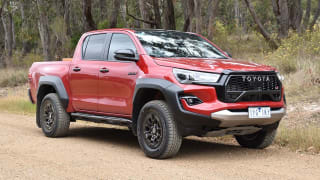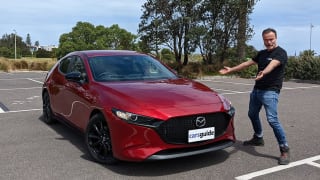
Electric cars vs petrol cars: What are the pros and cons of going electric?

A car that uses petrol is powered by an internal combustion engine that produces carbon dioxide (CO2) emissions that cause pollution, whereas an electric vehicle (EV) has an electric motor powered by a rechargeable lithium-ion battery that produces no CO2 emissions, and indeed doesn't even have an exhaust pipe.
Although cars with internal-combustion engines have been the norm for well over a century now, they are slowly but surely on their way out due to the development of vehicles like electric cars that are far better for the environment.
Some 10 million EVs were produced over the course of 2022, 95 per cent of which were sold in Europe, the US, and China. It's an emerging trend which is tilting squarely in favour of EVs in the electric cars vs petrol cars debate, as the number was just 3.1 million in 2020.
Sales of EVs grew to 14 per cent of the global total in 2022 from 9 per cent in 2021 and 5 per cent in 2020, although that figure is forecast to balloon to a massive 28 per cent of new global car sales by the time 2030 rolls around, and 58 per cent by 2040. Meanwhile sales in Australia are hovering at roughly 7.5 per cent over the course of 2023, up from just 3.8 per cent in 2022.
Electric cars vs petrol cars: pros and cons
There are several key factors in the electric cars vs petrol cars argument, and all are important to consider when it comes time to consider what your next car will be.


Download the EVGuide Report, 2022
Australia's one-stop snapshot of all things relating to electric cars.
Electric cars vs petrol cars: pollution
In the battle of electric cars vs petrol cars, emissions are obviously a huge factor to take into consideration, since 20 per cent of all CO2 emissions globally originate from road traffic. Fossil-fuel-devouring combustion engines create 1.2 to 1.6 times more CO2 than battery-powered electric cars, with EVs leaving a far less harmful carbon footprint.
There are both advantages and disadvantages of electric cars, though.
When weighing up electric cars vs petrol cars, environment pollution caused by CO2 seems to be solely attributed to internal-combustion engines, but that’s not the whole picture.
The production of the lithium-ion batteries that electric vehicles use emits 1.43 times more CO2 than the production of internal-combustion engines, and the power plants that create the electricity needed for EVs can also be big producers of CO2 emissions, via the burning of fossil fuels.
That being said, even if an electric car is powered from a coal-based grid, its emissions by the time the power gets to the wheels are still significantly lower than that of a combustion car, and electric vehicles are also able to claw back some of the emissions from manufacturing when they are charged with power from truly green sources, like solar or wind. They also offer those with solar arrays at their home a way to store power that they might not otherwise be able to use.

Electric cars vs petrol cars: cost
One of the major issues around EVs and their uptake in Australia is price. Due to the government’s refusal to offer any meaningful subsidies to consumers - as other authorities have done in Europe and the US, resulting in a sales boost - the cost of electric cars vs petrol cars is noticeably higher.
In some cases an EV version of a particular model can be close to double the price of the petrol-powered variant, making EVs less attractive to anyone hoping to save a few bucks when purchasing a new car. For example, the 2023 MG ZST combustion SUV in equivalent top-spec trim costs $33,990, while its electric equivalent, the ZS EV Long Range, costs $55,990, a $22k difference.
The minimum price to get into an electric car has significantly dropped in 2023, however, thanks to the introduction of lower-cost hatchback EVs from Chinese manufacturers, such as the BYD Dolphin, MG4, and GWM Ora.
As for ongoing costs, EVs come out on top as they are cheaper than petrol cars to maintain since they have far less moving parts, thus requiring far less in the way of servicing.
Electric cars vs petrol cars: range
For those not in the know, ‘range’ refers to how far a car travel on a single tank of petrol (or a fully charged battery, in the case of an EV).
The petrol car with the highest range is the Toyota Land Cruiser Prado, which has a 1,875km range on a full tank - almost triple that of the highest performing locally-delivered EV, the Polestar 2 Long Range which has a top range of 654km.
There’s also convenience to take into account: petrol stations are pretty much everywhere, meaning you’re only likely to run out of fuel if you head off into the middle of nowhere without considering where and when you’ll need to fill up again. However, electric vehicles can be charged up at home or in an office, and charge can often be topped up a little at a time at your local shops, meaning you may seldom have to even think about a longer hour-plus charging session which many potential EV owners dread.
However, while there’s been an improvement in the number of public electric charging stations over the last few years, there is still estimated to be a little over 3000 public charging stations Australia-wide, catering to the now over 10,000 EVs currently on Aussie roads.

Electric cars vs petrol cars: performance
EVs are able to generate instant torque thanks to their simple electric motors, meaning they have much more rapid off-the-line performance when compared to their combustion alternatives, which often have to deal with mechanical complexities like gearboxes and turbo-lag.
Even a base Tesla Model 3 is capable of sprinting from 0-100km/h in just 6.1 seconds, a speed which you would usually have to buy an expensive performance-oriented variant or model of a combustion car to achieve.
While the additional wieght of their batteries also make electric cars more easily cling to the ground, many manufacturers are yet to make their electric vehicles handle or ride as well as some of their much lighter combustion cars.
With their ability to instantaneously adjust torque, and in some cases be able to independently control each wheel, electric vehicles are theoretically also very capable off-road, although weight and range are an issue for getting to off-road locations and back, particularly if you want to take much with you.
Are electric cars better than petrol cars?
Having examined both the advantages and disadvantages of petrol cars and electric cars, the answer to this question will ultimately come down to what you value the most as a driver.
Happy to pay a bigger upfront cost for longer-term savings? Electric cars are for you.
Want to get a substantially longer driving range from your vehicle and enjoy the convenience of having petrol stations peppered around everywhere? A car with an internal-combustion engine might be the ticket.
The argument ender, however, may still come down to looking to the future and considering the environmental impact that your choice will have.
Australia’s Bureau of Infrastructure, Transport and Regional Economics forecasts that EVs will have a whopping 60 per cent market share here by 2046, which calculates to a possible overall reduction of 18 million tonnes of CO2 being released into the atmosphere - an amount you can’t ignore if you’re concerned about the planet’s future.










Comments